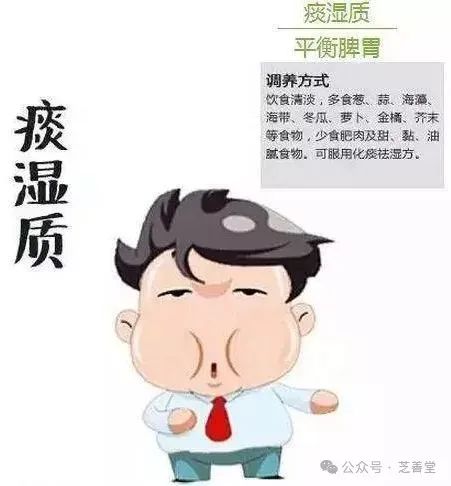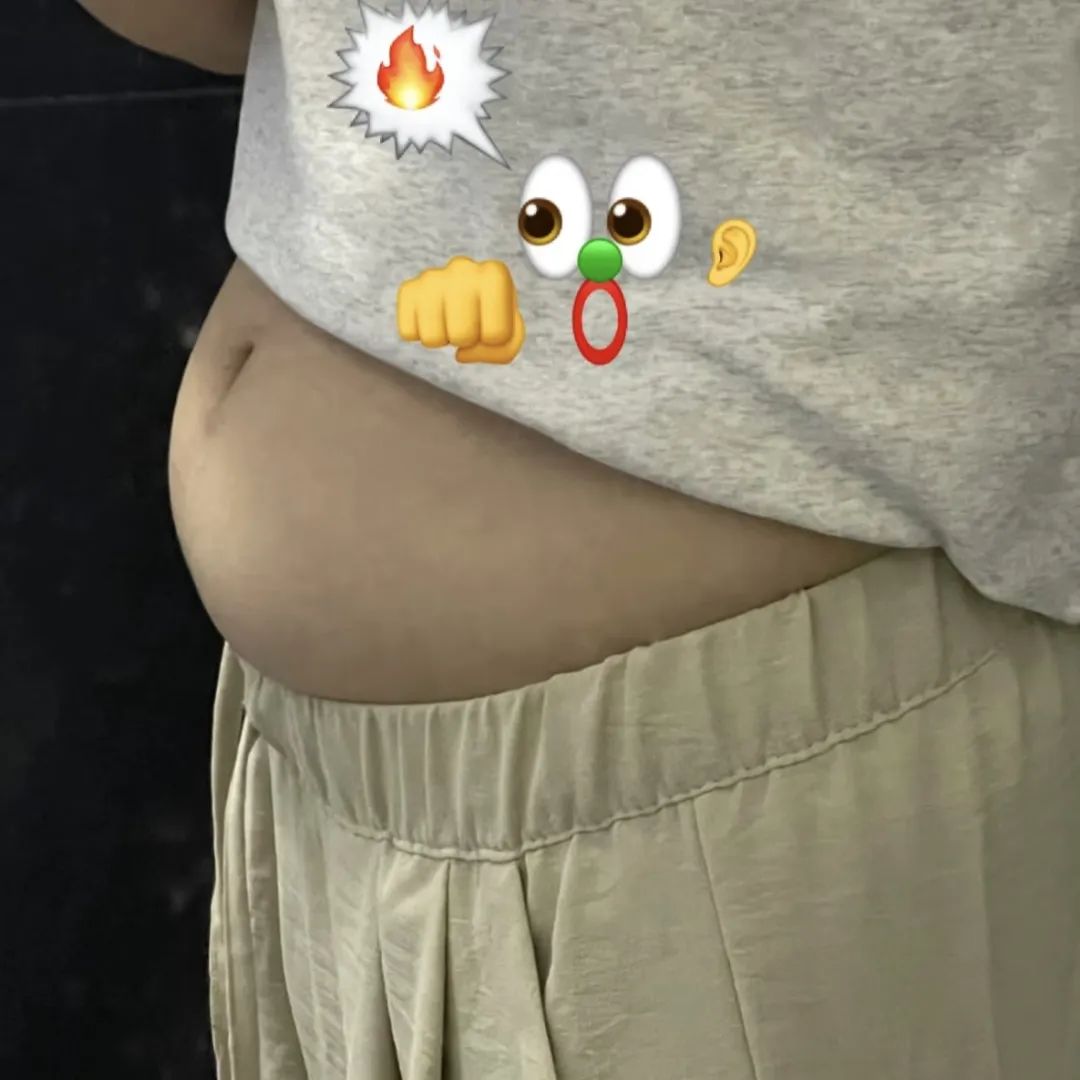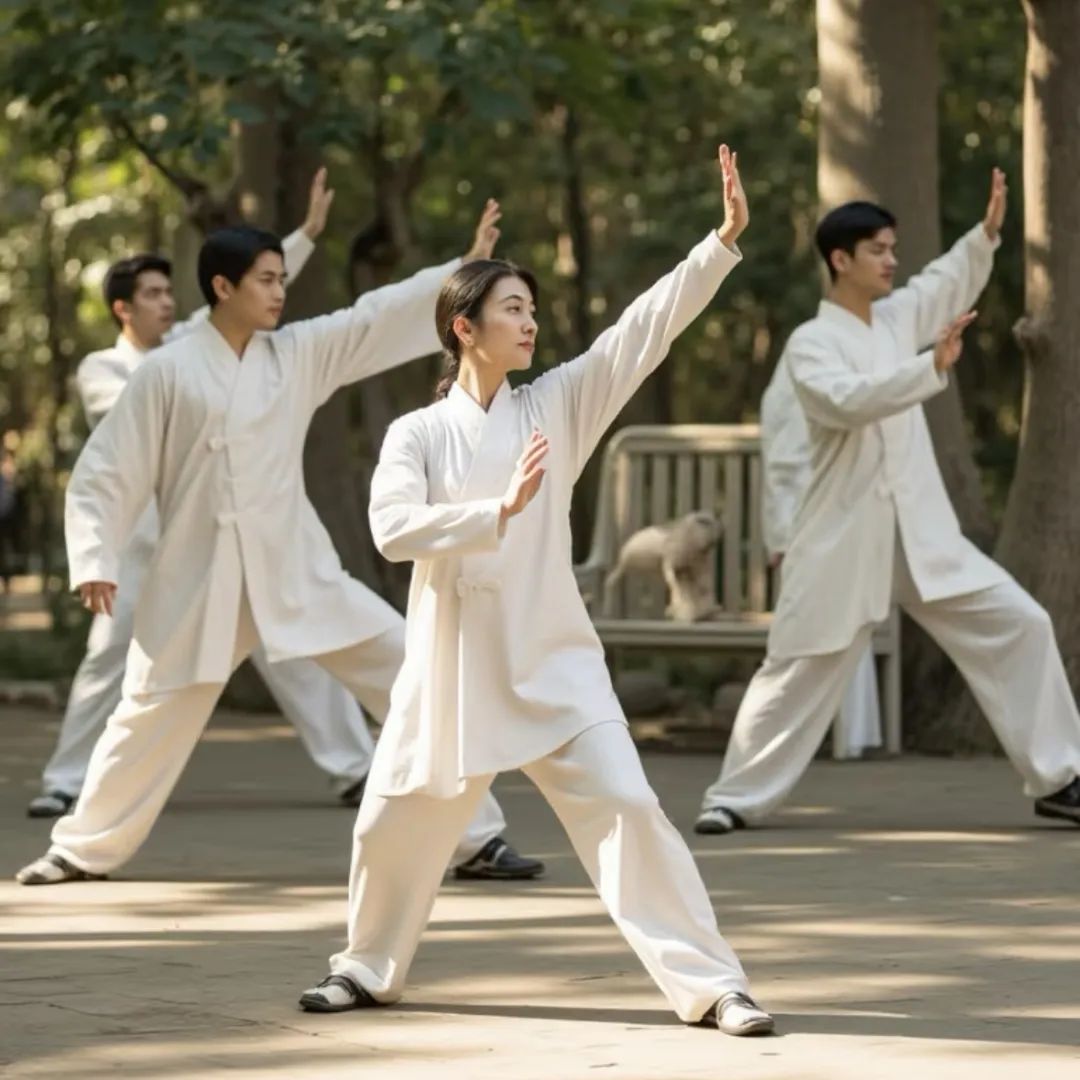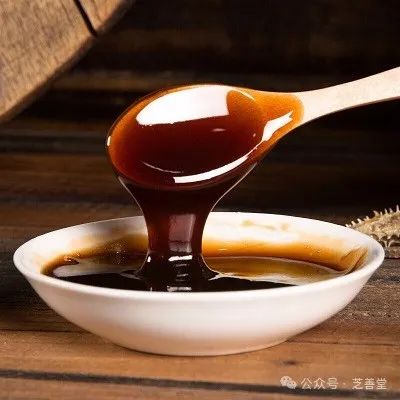 What is Phlegm-Damp Constitution?The phlegm in phlegm-damp constitution is not the phlegm we usually think of. It refers to the abnormal accumulation of bodily fluids, which is a pathological product. If the movement and transformation of fluids in the body are disordered, the accumulation of fluids leads to dampness, which, over time, condenses into phlegm.Phlegm can harm the organs. Since the formation of phlegm in the body is caused by the poor movement of dampness, it is referred to as phlegm-damp.
What is Phlegm-Damp Constitution?The phlegm in phlegm-damp constitution is not the phlegm we usually think of. It refers to the abnormal accumulation of bodily fluids, which is a pathological product. If the movement and transformation of fluids in the body are disordered, the accumulation of fluids leads to dampness, which, over time, condenses into phlegm.Phlegm can harm the organs. Since the formation of phlegm in the body is caused by the poor movement of dampness, it is referred to as phlegm-damp. This constitution is often accompanied by dysfunction of the liver and gallbladder, spleen and stomach, and endocrine disorders. Therefore, it is said in TCM: “All diseases arise from phlegm; everyone indulges in eating, drinking, and entertainment. Conditions like hypertension, obesity, fatty liver, cerebral infarction, and lumbar disc herniation are all related to phlegm. To eliminate phlegm and dampness is to live a long life!”
This constitution is often accompanied by dysfunction of the liver and gallbladder, spleen and stomach, and endocrine disorders. Therefore, it is said in TCM: “All diseases arise from phlegm; everyone indulges in eating, drinking, and entertainment. Conditions like hypertension, obesity, fatty liver, cerebral infarction, and lumbar disc herniation are all related to phlegm. To eliminate phlegm and dampness is to live a long life!”
How to determine if you have a phlegm-damp constitution?
1. Oily hair that could fry food
2. Oily face, prone to acne
3. Difficulty waking up, feeling heavy-headed in the morning
4. Constant fatigue, feeling as if the body is filled with lead
5. Easy weight gain in the abdomen, difficult to lose
6. Sticky, difficult bowel movements with a foul smell
7. Poor appetite, prone to bloating
8. Bad breath, athlete’s foot, and dampness with odor in the groin
9. Thick, greasy tongue coating, either white or yellow
10. Excessive phlegm that is difficult to expel
If you meet more than 3 of the above 10 points, you can basically confirm a “phlegm-damp” constitution.
 What problems are easily caused by phlegm-damp constitution?Experts point out that individuals with phlegm-damp constitution are prone to fatigue, excessive sweating, heavy head, limb weakness, skin itching, eczema, and abdominal bloating.In severe cases, phlegm-damp can lead to blood stasis. When there is excessive phlegm-damp, harmful fluids accumulate in our cells, tissues, organs, and blood, causing poor blood circulation. Therefore, excessive phlegm-damp can easily lead to blood stasis. In daily life, many people suffer from fatty liver, asthma, hypertension, cardiovascular diseases, and even malignant tumors, all of which are related to dampness and phlegm.
What problems are easily caused by phlegm-damp constitution?Experts point out that individuals with phlegm-damp constitution are prone to fatigue, excessive sweating, heavy head, limb weakness, skin itching, eczema, and abdominal bloating.In severe cases, phlegm-damp can lead to blood stasis. When there is excessive phlegm-damp, harmful fluids accumulate in our cells, tissues, organs, and blood, causing poor blood circulation. Therefore, excessive phlegm-damp can easily lead to blood stasis. In daily life, many people suffer from fatty liver, asthma, hypertension, cardiovascular diseases, and even malignant tumors, all of which are related to dampness and phlegm.
How did your phlegm-damp constitution develop? Reflect while comparing:
1. Cold and damp invasionHumid climate, getting caught in the rain, or living in a damp environment for a long time can lead to dampness invading the body,resulting in phlegm accumulation.For example, in southern regions and Lingnan, the climate is humid and hot, and the diet is often damp or greasy, leading to more phlegm-damp individuals.2. Indulgent dietOvereating and a preference for rich, greasy foods can damage the spleen and stomach over time, leading to internal dampness and the formation of phlegm-damp constitution.3. Congenital endowmentIndividuals with a naturally hot stomach may overeat rich foods, leading to stagnation and phlegm accumulation.4. Aging and chronic illnessAs one ages, the body weakens,the spleen and stomach may become deficient, and kidney yang may decline, leading to poor fluid metabolism and phlegm-damp formation.5. Lack of exerciseProlonged sitting leads to poor circulation of qi and blood, disharmony of the spleen and stomach, and inability to transform and transport dampness, resulting in internal phlegm-damp accumulation.
What everyone is most concerned about is how to improve? Here are two main directions: diet and lifestyle👇
1. Dietary adjustments
Dietary regulation is a key aspect. It is important to reduce the intake of rich, greasy, and sweet sticky foods, and to eat more foods that strengthen the spleen and eliminate dampness, such as Qian Shi (Fox Nut), Yi Yi Ren (Job’s Tears), Chi Xiao Dou (Adzuki Bean), winter melon, yam, Bai Bian Dou (White Hyacinth Bean), and Chen Pi (Dried Tangerine Peel). Yi Yi Ren is cold in nature, sweet and bland in taste, and has the effects of promoting urination, eliminating dampness, strengthening the spleen, and clearing heat; it is an excellent choice for eliminating dampness. Winter melon is also cold in nature, sweet and bland, and helps to promote urination, eliminate phlegm, and detoxify. Regular consumption of winter melon can help expel excess fluids and phlegm from the body. Additionally, some foods that have phlegm-eliminating properties, such as Bai Luobo (White Radish) and kelp, can also be consumed.Moreover, it is essential to remember to have breakfast; skipping breakfast can exacerbate internal dampness. Avoid late-night snacks.
2. Lifestyle adjustments
Increase physical activity
TCM emphasizes “movement generates yang”; those with phlegm-damp constitution should persist in exercising,as appropriate exercise can enhance yang energy, promote qi and blood circulation, and help expel phlegm-damp. Exercises such as Ba Duan Jin (Eight Pieces of Brocade), Wu Qin Xi (Five Animal Frolics), walking, and Tai Chi are all beneficial.
 Focusing on the coordination of breathing and movement can regulate the circulation of qi and blood, promote the function of the spleen and stomach, and help the body expel phlegm-damp. Exercising for half an hour to an hour daily, and maintaining this over time, will gradually make the body feel lighter and reduce phlegm-damp.
Focusing on the coordination of breathing and movement can regulate the circulation of qi and blood, promote the function of the spleen and stomach, and help the body expel phlegm-damp. Exercising for half an hour to an hour daily, and maintaining this over time, will gradually make the body feel lighter and reduce phlegm-damp.
Avoid damp environments
Do not live in damp environments, avoid getting wet in the rain, and thoroughly dry the body after bathing. It is recommended to finish bathing before 10 PM,as bathing too late can easily accumulate dampness.
3. Medicinal paste adjustments

Medicinal paste, also known as Gao Fang, originated in the Han and Tang dynasties, and is a precious TCM formulation that integrates various functions such as nourishing the body, anti-aging, treating diseases, and preventive care. For thousands of years, it has been a favored tonic among the royal courts and dignitaries. Due to its precious ingredients and complex preparation, it is often said that “a bowl of medicinal paste is worth ten taels of gold.” The Qing Dynasty Imperial Hospital recorded over 30 types of medicinal pastes, and the empresses of the Qing Dynasty were among the longest-lived in history, hence the saying “medicinal paste is unparalleled in the world.”Based on the principle of “one person, one formula, correct the original constitution,” carefully crafted medicinal pastes use various authentic medicinal materials such as Qian Shi (Fox Nut), Chen Pi (Dried Tangerine Peel), and Dang Shen (Codonopsis Root), combining traditional techniques with modern biotechnology. Regular consumption can strengthen the spleen and stomach, eliminate dampness and blood stasis, and significantly improve phlegm-damp constitution. If conditions allow, it is worth trying.
Disclaimer: Some images and texts on this platform are sourced from the internet for reference only. If there is any infringement, please contact us promptly, and we will delete them.
 Long press to follow“ZhiShan Tang”to learn more about TCM health knowledge
Long press to follow“ZhiShan Tang”to learn more about TCM health knowledge

